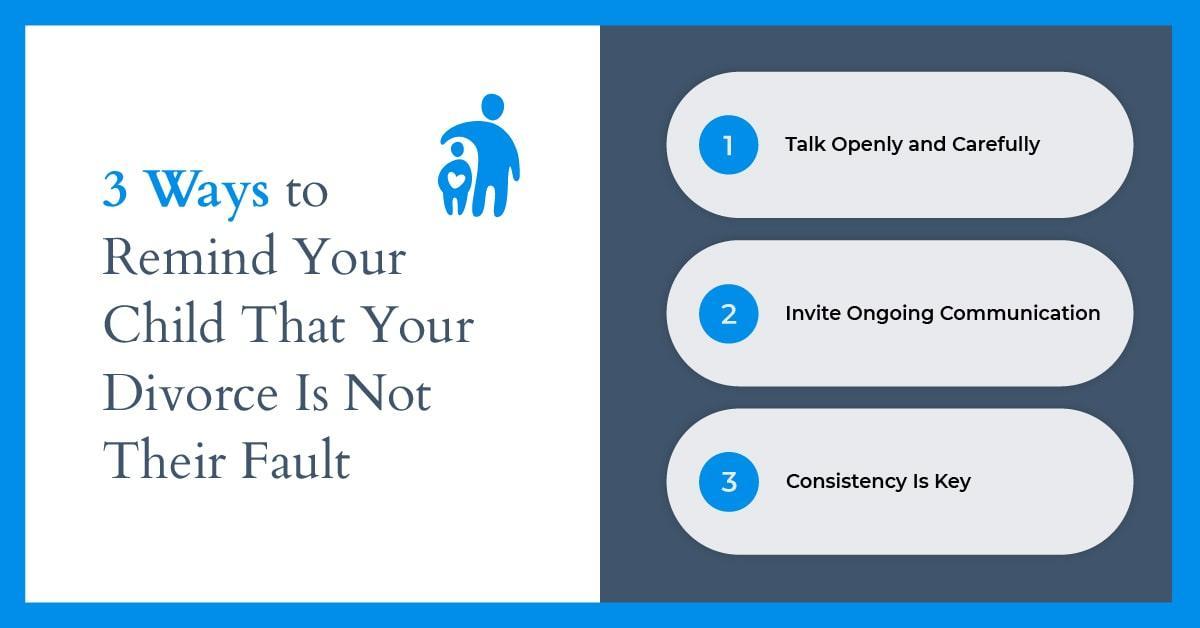Recent Blog Posts
What Factors are Considered in Illinois Alimony Determinations?
 If you have spent most of your adult life as a homemaker, then worrying about how you will provide for yourself should not be a barrier to getting divorced. If you have reached a point where you no longer feel that your marriage is working out, you should have the same freedom a working person would have to leave. Unfortunately, practical financial circumstances sometimes work to keep people - especially women - trapped in a marriage they do not want to be in anymore. Illinois courts have long since recognized both the economic value of a homemaker spouse and the difficulty of reentering the workforce after years away. These are some of the reasons that the legal concept of alimony was developed. In some cases, you may be entitled to continue receiving support payments from your spouse for a length of time after your marriage has ended. Alimony can be a very contentious issue in a divorce, so it is important to involve a lawyer early on if you believe that you will need alimony payments to support yourself after you get divorced.
If you have spent most of your adult life as a homemaker, then worrying about how you will provide for yourself should not be a barrier to getting divorced. If you have reached a point where you no longer feel that your marriage is working out, you should have the same freedom a working person would have to leave. Unfortunately, practical financial circumstances sometimes work to keep people - especially women - trapped in a marriage they do not want to be in anymore. Illinois courts have long since recognized both the economic value of a homemaker spouse and the difficulty of reentering the workforce after years away. These are some of the reasons that the legal concept of alimony was developed. In some cases, you may be entitled to continue receiving support payments from your spouse for a length of time after your marriage has ended. Alimony can be a very contentious issue in a divorce, so it is important to involve a lawyer early on if you believe that you will need alimony payments to support yourself after you get divorced.
How Can Divorced Parents Plan for College Expenses?
 Going to college right after high school is one of the most popular paths young people take today. College is no longer something reserved for only the best academic performers, but rather, something most white-collar employers expect. It can be challenging for any family to cover the complete cost of a college education. Between tuition, textbooks, and room and board, sending your child to college without having them incur student loans can be a challenge. If you and your spouse are getting divorced while your child is still in grade school, you may wonder whether your spouse will still contribute to college expenses. Fortunately, in Illinois, courts can order both parents to contribute what they can towards your child’s educational expenses. In most cases, this can be done as a part of your divorce decree. If you are concerned about paying for college after a divorce, it is best to speak with an attorney to determine what options you and your child may have.
Going to college right after high school is one of the most popular paths young people take today. College is no longer something reserved for only the best academic performers, but rather, something most white-collar employers expect. It can be challenging for any family to cover the complete cost of a college education. Between tuition, textbooks, and room and board, sending your child to college without having them incur student loans can be a challenge. If you and your spouse are getting divorced while your child is still in grade school, you may wonder whether your spouse will still contribute to college expenses. Fortunately, in Illinois, courts can order both parents to contribute what they can towards your child’s educational expenses. In most cases, this can be done as a part of your divorce decree. If you are concerned about paying for college after a divorce, it is best to speak with an attorney to determine what options you and your child may have.
3 Reasons Business Owners Need a Valuation During Divorce
 Dividing a family business during divorce can be complicated. There are often many moving parts required to keep a business running smoothly even as its owners divorce. Your business may own a significant amount of capital or real estate. It may hold valuable contracts with employees - or employees may own shares of the company. All this can make equitably dividing a business among other marital assets challenging. As you begin to consider how your marital assets are to be divided, determining who will keep the business or other property in exchange for the business, it is important to know what your business is actually worth. Often, this is not the only consideration. The business may have been one spouse’s primary trade during the marriage, while the other does not have the experience needed to run it alone. However, in Illinois, both spouses are likely to have been deemed to have contributed to the success of the company even if one spouse was more hands-on. It is important to be represented by an experienced lawyer if your divorce will include a family business.
Dividing a family business during divorce can be complicated. There are often many moving parts required to keep a business running smoothly even as its owners divorce. Your business may own a significant amount of capital or real estate. It may hold valuable contracts with employees - or employees may own shares of the company. All this can make equitably dividing a business among other marital assets challenging. As you begin to consider how your marital assets are to be divided, determining who will keep the business or other property in exchange for the business, it is important to know what your business is actually worth. Often, this is not the only consideration. The business may have been one spouse’s primary trade during the marriage, while the other does not have the experience needed to run it alone. However, in Illinois, both spouses are likely to have been deemed to have contributed to the success of the company even if one spouse was more hands-on. It is important to be represented by an experienced lawyer if your divorce will include a family business.
When Can Digital Evidence Play a Role in Divorce Proceedings?
 In today's digital age, we rely heavily on electronic devices and online platforms for communication, socializing, and storing personal information. As a result, digital evidence has become increasingly relevant in divorce proceedings. Whether this evidence consists of text messages, emails, social media posts, or location data from smartphones, electronic records can provide valuable information that may impact the outcome of a divorce case. Some ways that digital information can affect a divorce include:
In today's digital age, we rely heavily on electronic devices and online platforms for communication, socializing, and storing personal information. As a result, digital evidence has become increasingly relevant in divorce proceedings. Whether this evidence consists of text messages, emails, social media posts, or location data from smartphones, electronic records can provide valuable information that may impact the outcome of a divorce case. Some ways that digital information can affect a divorce include:
Discovering Hidden Assets
Many people use online banking services or financial apps to manage their finances. By analyzing bank statements and transactions made through these platforms, it may be possible to identify suspicious activity or undisclosed accounts. Attempts to hide assets may be brought to the attention of the court, and this may affect decisions about the division of marital property.
Does it Matter Who Files First in an Illinois Divorce?
 When it comes to filing for divorce, many individuals wonder if there are any advantages or disadvantages to being the first one to file. While it may seem like filing first could provide certain advantages, the reality is that, in most cases, it does not significantly impact the outcome of the divorce proceedings. Illinois is a “no-fault” divorce state, which means that the reason why the divorce is taking place, or who filed first, does not typically play a major role in the resulting settlement. However, it is important to consider various factors and consult with a divorce attorney to ensure the best possible outcome for your specific situation.
When it comes to filing for divorce, many individuals wonder if there are any advantages or disadvantages to being the first one to file. While it may seem like filing first could provide certain advantages, the reality is that, in most cases, it does not significantly impact the outcome of the divorce proceedings. Illinois is a “no-fault” divorce state, which means that the reason why the divorce is taking place, or who filed first, does not typically play a major role in the resulting settlement. However, it is important to consider various factors and consult with a divorce attorney to ensure the best possible outcome for your specific situation.
Someone Must Be at Fault, Right?
Regardless of why the divorce is taking place, the only grounds for divorce in Illinois are irreconcilable differences. This means that neither party needs to prove either was at fault for the disintegration of the marriage. Additionally, Illinois law dictates that the court does not favor one party over the other based on who filed first. Rather, the focus is on the equitable division of assets, child custody, and other relevant factors.
3 Ways to Remind Your Child That Your Divorce is Not Their Fault
 It is normal and common for a child to feel as if they are to blame when their parents get divorced. Many children struggle with self-blame when their parents begin to separate. They may reflect on times they have misbehaved and wonder whether it had anything to do with your decision to get divorced. Almost no parent would say that their child is the reason for their divorce. Reminding your child that they are not to blame in your divorce can help your child cope with the divorce in a more healthy way. It can be difficult for children to adjust to spending time with their parents in different households or only seeing one parent most or all of the time. Parents should take steps to protect their children’s emotional health during this time. Helping them understand that nothing happening is their fault can go a long way towards raising an emotionally healthy child after divorce.
It is normal and common for a child to feel as if they are to blame when their parents get divorced. Many children struggle with self-blame when their parents begin to separate. They may reflect on times they have misbehaved and wonder whether it had anything to do with your decision to get divorced. Almost no parent would say that their child is the reason for their divorce. Reminding your child that they are not to blame in your divorce can help your child cope with the divorce in a more healthy way. It can be difficult for children to adjust to spending time with their parents in different households or only seeing one parent most or all of the time. Parents should take steps to protect their children’s emotional health during this time. Helping them understand that nothing happening is their fault can go a long way towards raising an emotionally healthy child after divorce.
Helping Your Child Understand That They Are Not at Fault
Divorce Options for Spouses of Substance Abusers
 Substance abuse is an enormous social problem almost everywhere in the country. The large proportion of Americans who struggle with substance abuse means that illicit drugs are widely available and easily accessible. Many people are able to recover from addiction and go on to have normal, productive lives. However, if your spouse is addicted to drugs and has not put forth the effort to get clean, you may find that your marriage has become more of a burden than a boon. You are not obligated to stay and continue trying to take care of a person who will not do the work needed to take care of themselves. Divorce may be the best option for protecting yourself and any children involved. Unfortunately, getting a divorce from a substance abuser can be difficult. It is important to have skilled legal representation as you begin the often-difficult task of divorcing your addicted spouse.
Substance abuse is an enormous social problem almost everywhere in the country. The large proportion of Americans who struggle with substance abuse means that illicit drugs are widely available and easily accessible. Many people are able to recover from addiction and go on to have normal, productive lives. However, if your spouse is addicted to drugs and has not put forth the effort to get clean, you may find that your marriage has become more of a burden than a boon. You are not obligated to stay and continue trying to take care of a person who will not do the work needed to take care of themselves. Divorce may be the best option for protecting yourself and any children involved. Unfortunately, getting a divorce from a substance abuser can be difficult. It is important to have skilled legal representation as you begin the often-difficult task of divorcing your addicted spouse.
Can Children in Kane County Choose Which Parent to Live With?
 When parents are getting a divorce or separating, one of the most contentious issues is often who will have more parenting time to spend with the children. Few parents are willing to give up any amount of time they could spend with their child in a shared custody arrangement. While Illinois has largely dispensed with the term “primary custody,” it does often work out so that one parent’s home is the child’s primary residence, while the other parent enjoys shorter amounts of parenting time. Determining which parent will have the children most of the time can be difficult for many families. One option that many parents choose is to enlist the help of a mediator and work out an arrangement by mutual agreement. However, in cases where this is not possible or practical for any reason, it typically falls to the court to make that decision. While a child’s input on the matter is important, it is not generally the deciding factor.
When parents are getting a divorce or separating, one of the most contentious issues is often who will have more parenting time to spend with the children. Few parents are willing to give up any amount of time they could spend with their child in a shared custody arrangement. While Illinois has largely dispensed with the term “primary custody,” it does often work out so that one parent’s home is the child’s primary residence, while the other parent enjoys shorter amounts of parenting time. Determining which parent will have the children most of the time can be difficult for many families. One option that many parents choose is to enlist the help of a mediator and work out an arrangement by mutual agreement. However, in cases where this is not possible or practical for any reason, it typically falls to the court to make that decision. While a child’s input on the matter is important, it is not generally the deciding factor.
If I am Already Married, is it Too Late for a Prenuptial Agreement?
 Many engaged couples feel that prenuptial agreements are unromantic. It can certainly feel less-than-hopeful when you and the person you are about to marry must discuss who keeps what in the event that you divorce later. During your engagement, you were likely focused on the details of your wedding and your dream of living happily ever after with your soon-to-be spouse. Once you are married, you may begin to think about whether you should have made a prenuptial agreement. Many married people believe that they have missed their chance to reach an agreement governing important issues. Fortunately, it is not too late to create what is called a postnuptial agreement. Both you and your spouse should be represented by an attorney when you begin the process of creating a postnuptial agreement.
Many engaged couples feel that prenuptial agreements are unromantic. It can certainly feel less-than-hopeful when you and the person you are about to marry must discuss who keeps what in the event that you divorce later. During your engagement, you were likely focused on the details of your wedding and your dream of living happily ever after with your soon-to-be spouse. Once you are married, you may begin to think about whether you should have made a prenuptial agreement. Many married people believe that they have missed their chance to reach an agreement governing important issues. Fortunately, it is not too late to create what is called a postnuptial agreement. Both you and your spouse should be represented by an attorney when you begin the process of creating a postnuptial agreement.
Why Should My Spouse and I Make a Postnuptial Agreement?
What Should an Illinois Parenting Plan Include?
 When parents with at least one child in common get divorced in Illinois and will share custody, they must file what is called a parenting plan. Parenting plans may also be needed for parents who were never married, but are separating. A parenting plan is more than a visitation schedule, and more than a child support order. Parenting plans include a wide variety of information and agreements or court orders. In many cases, parenting plans are developed by mutual agreement of the parents outside of court. These plans are of very high importance to both the parents involved and the children involved, as they make quite a few provisions regarding how co-parenting will work after the divorce is finalized. It is important to be represented by an attorney before you begin to discuss future co-parenting plans with your soon-to-be ex-spouse. An attorney can help you understand what rights you as a parent have and what rights your children have in this situation.
When parents with at least one child in common get divorced in Illinois and will share custody, they must file what is called a parenting plan. Parenting plans may also be needed for parents who were never married, but are separating. A parenting plan is more than a visitation schedule, and more than a child support order. Parenting plans include a wide variety of information and agreements or court orders. In many cases, parenting plans are developed by mutual agreement of the parents outside of court. These plans are of very high importance to both the parents involved and the children involved, as they make quite a few provisions regarding how co-parenting will work after the divorce is finalized. It is important to be represented by an attorney before you begin to discuss future co-parenting plans with your soon-to-be ex-spouse. An attorney can help you understand what rights you as a parent have and what rights your children have in this situation.












